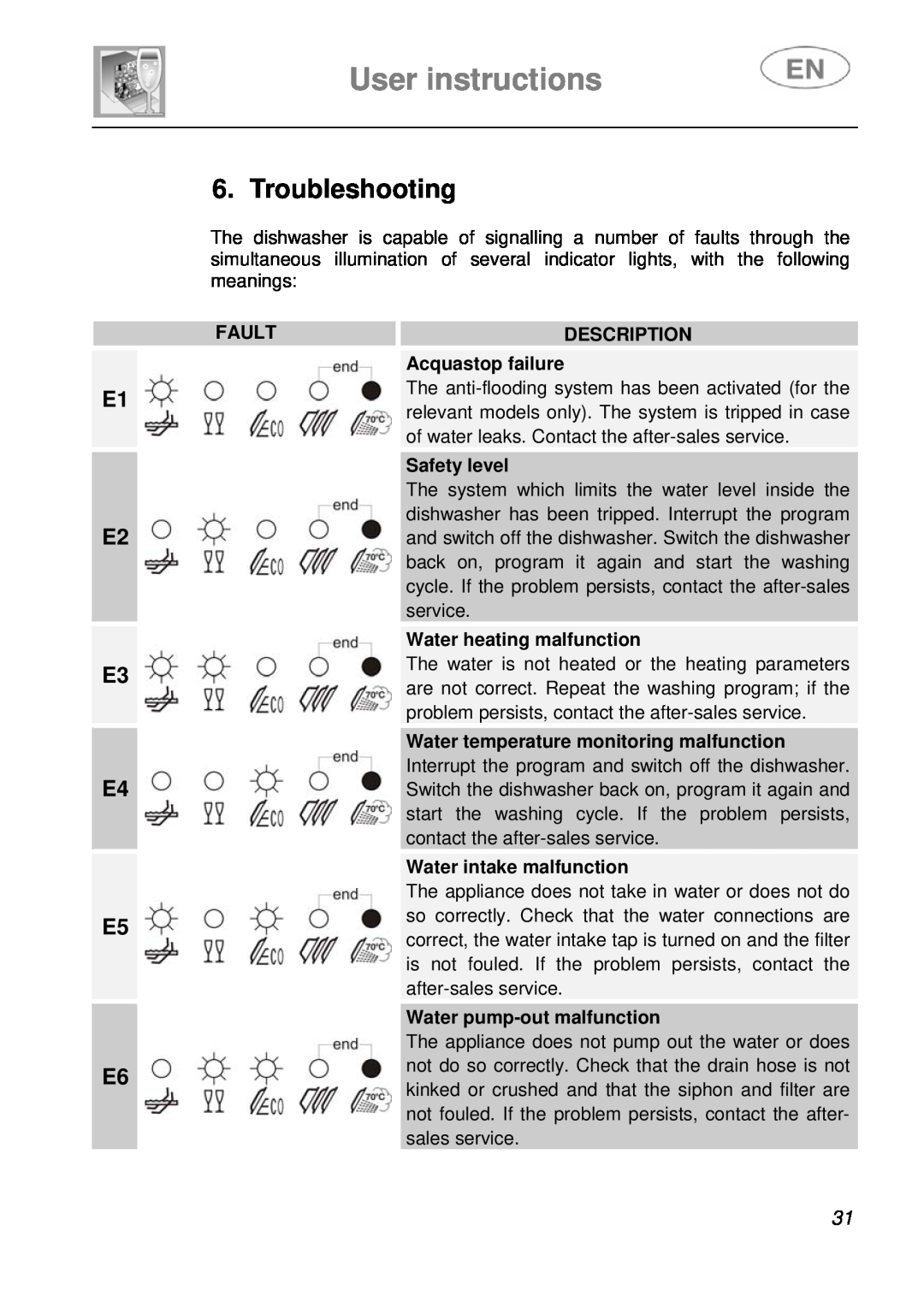
E1
E2
E3
E4
E5
E6
User instructions
6. Troubleshooting
The dishwasher is capable of signalling a number of faults through the simultaneous illumination of several indicator lights, with the following meanings:
FAULT | DESCRIPTION |
|
|
| Acquastop failure |
| The |
| relevant models only). The system is tripped in case |
| of water leaks. Contact the |
|
|
| Safety level |
| The system which limits the water level inside the |
| dishwasher has been tripped. Interrupt the program |
| and switch off the dishwasher. Switch the dishwasher |
| back on, program it again and start the washing |
| cycle. If the problem persists, contact the |
| service. |
|
|
| Water heating malfunction |
| The water is not heated or the heating parameters |
| are not correct. Repeat the washing program; if the |
| problem persists, contact the |
|
|
| Water temperature monitoring malfunction |
| Interrupt the program and switch off the dishwasher. |
| Switch the dishwasher back on, program it again and |
| start the washing cycle. If the problem persists, |
| contact the |
|
|
| Water intake malfunction |
| The appliance does not take in water or does not do |
| so correctly. Check that the water connections are |
| correct, the water intake tap is turned on and the filter |
| is not fouled. If the problem persists, contact the |
| |
|
|
| Water |
| The appliance does not pump out the water or does |
| not do so correctly. Check that the drain hose is not |
| kinked or crushed and that the siphon and filter are |
| not fouled. If the problem persists, contact the after- |
| sales service. |
31
